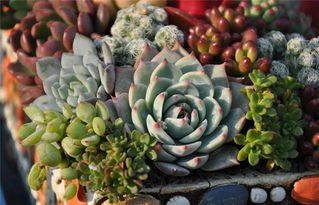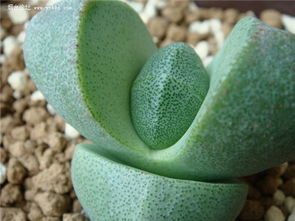初三英语花语小故事
The Wild Honey-Suckle 野金银花
By Philip Freneau
作者:Philip Freneau
Fair flower, that dost so comely grow,
Hid in this silent, dull retreat,
美丽的金银花,
你粲然绽放于幽静一角。
Untouched thy honied blossoms blow,
芳菲满枝,无人垂顾,
Unseen thy little branches greet;
迎风起舞,无人注目。
...No roving foot shall crush thee here,
游子从不践踏你的玉体,
...No busy hand provoke a tear.
过客从不催落你的泪滴。
By Nature's self in white arrayed,
造化令你素裹银妆,
She bade thee shun the vulgar eye,
你得以远离庸人的目光。
And planted here the gaurdian shade,
她赐予你一片绿阴葱葱,
And sent soft waters murmuring by;
她带给你一泓流水淙淙。
...Thus quietly thy summer goes,
恬静的夏日倏然流淌,
...Thy days declinging to repose.
你终于红衰翠减,玉陨香消。
Smit with those charms, that must decay,
妩媚动人,你却无法盛颜久长,
I grieve to see your future doom;
落红满地,你令我黯然神伤。
They died--nor were those flowers more gay,
纵然在伊甸乐园,人间天堂,
The flowers that did in Eden bloom;
也难免一日凋零,满目凄凉。
...Unpitying frosts, and Autumn's power
萧瑟秋风,凄白秋霜,
...Shall leave no vestige of this flower.
你终于消失得无影无踪。
From morning suns and evenign dews
朝霞暮露,
At first thy little being came:
孕育了你娇小的身躯。
If nothing once, you nothing lose,
你从尘土来,又归尘土去,
For when you die you are the same;
来时一无所有,去时化作尘土,
...The space between, is but an hour,
可叹生命苦短,
...The frail duration of a flower.
你终究红消香断。
《野金银花》是Freneau在南卡罗莱纳州查尔斯顿散步时,看到一簇幽生的金银花,于是便有感而发写的这首短诗,诗人以敏锐的观察力、浅俗的词汇、优美的旋律和清晰的意象,细腻生动地描写了盛开于北美大地不为人们注意的野金银花。
1.此诗分为两大部分,前两节写景,后两节抒情。写景以抒情为目的,抒情以写景为背景,两部分互为烘托,成为不可分割的整体。
2.诗人以惊喜的目光看到自然界神奇的产物时,心中涌动的是对大自然无限的崇拜之情,如果说绿荫指的是未受人类文明侵犯的新大陆处女地的话,那些美丽的金银花则应是大自然创作的生命的具体体现。
3.诗人用浅显的文字勾画出一片繁荣祥和的景象,在对生命的赞叹中,流露出返璞归真、崇尚自然的情节,充满了浪漫主义情调和理想主义色彩。
4.Freneau以他对美洲大地的深厚感情和洞若幽微的感受力,通过对金银花的生长环境及其盛衰变迁的描述,抒发了他对短暂人生的感叹,使本诗在清丽的意境和浓郁的美洲大地的乡土气息中加入一层哲理的思考。
5.这首诗中,Freneau以抒情的色调描绘和讴歌了大自然的瑰丽,同时又揭示出自然界的萧杀冷酷和生命无奈短暂的本质,既有浪漫主义情调,又不乏意象主义的意味,的确不失为一首上乘之作。
357、英语小故事(中英对照)“白栀子花之谜”
Every year on my birthday, from the time I turned 12, a white gardenia(栀子花) was sent to my house.
从我12岁起,每年我生日那天,都会有一朵白栀子花送到我家。
There was never a card or note, and calls to the florist(花店) were in vain because the purchase was always made in cash.
从来没有卡片或便条,打电话给花店也是徒劳,因为买它的人总是用现金。
After a while, I stopped trying to discover the identity of the sender.
过了一段时间,我不再试图找出送花者的身份。
I just delighted in the beauty and heady(令人陶醉的) perfume of that one magical, perfect white flower nestled(依偎) in folds of soft pink tissue paper.
我只是陶醉于那朵充满魅力、完美无暇、依偎在柔软的粉红色包装纸的褶皱里的白花,以及沁人心脾的芳香。
But I never stopped imagining who the sender might be. Some of my happiest moments were spent daydreaming about the sender.
但我一直在想象送花者是谁。有时候我最开心的时刻就是对送花者的幻想。
My mother encouraged this imagining. She'd ask me if there was someone for whom I had done a special kindness. Perhaps it was the old man who I looked after when he was ill.
我母亲支持我这样想象。她问我,是否对某个人做过一件特别的善事,也许是一位生病时我照顾过他的老人。
As a girl, I had more fun imagining that it might be a boy who had noticed me even though I didn't know him.
作为一个女孩,我更多的乐趣在于想象可能是一个我不认识他的男孩注意到了我。
One month before my high school graduation, my father died of a heart attack.
在我高中毕业前一个月,我父亲死于心脏病。
I felt very sad and didn't want to go to the upcoming graduation dance at all. And I didn't care whether I had a new dress or not.
我感到很难过,根本不想去参加即将到来的毕业舞会。我也不在乎我有没有新的礼服。
But my mother, in her own sadness, would not let me miss out on any of these things. The day before the graduation dance, I found a beautiful dress awaiting me on the living-room sofa.
但我的母亲尽管自己很难过,但也不会让我错过任何这些事情。毕业舞会的前一天,我发现客厅的沙发上有一件漂亮的礼服在等着我。
I may not have cared about having a new dress, but my mother did. She cared how I felt about myself.
我可能不在乎新礼服,但我母亲在乎。她在乎我对自己的感觉。
She imbued(使感染) me with a sense of the magic in the world, and she gave me the ability to see beauty even in the face of adversity(逆境).
她让我对世界充满了神奇的感觉,让我在逆境中也能看到美好。
In truth, my mother wanted me to see myself much like the gardenia — lovely, strong and perfect.
事实上,我母亲希望我把自己看作栀子花一样——可爱、坚强、完美。
My mother died ten days after l was married. I was 28. That was the year the gardenia stopped coming.
我母亲在我结婚十天后去世了。那年我28岁,从那以后,再没有栀子花送来了。
初三英语小故事
Little Robert asked his mother for two cents.
"What did you do with the money I gave you yesterday?"
"I gave it to a poor old woman," he answered.
"You're a good boy," said the mother proudly. "Here are two cents
more. But why are you so interested in the old woman?"
"She is the one who sells the candy."
初中英语小故事带翻译
Long ago, there was a person named Chu Zhuliang who addressed himself as "Lord Ye." It was said that this Lord Ye was very fond of dragons. The walls of his house had dragons painted on them, while the beams, pillars, doors, and windows were all carved with the creatures. As a result, word of his love for dragons spread.
When the real dragon in heaven heard of this Lord Ye, he was deeply moved. He decided to visit Lord Ye to thank him.
You might think Lord Ye was very happy to see a real dragon. But, actually, at very the sight of the creature, he was scared out of his wits and ran away as fast as he could.
From then on, people knew that Lord Ye only loved pictures or carvings that looked like dragons, but not the real thing.
春秋楚国沈诸梁,自称“叶公”。 据说,这位叶公爱龙成癖,家里的梁、柱、门、窗上都雕着龙,墙上也画着龙。 就这样,叶公爱好龙的名声,被人们传扬开了。天上的真龙,听说人间有这么一位叶公,对它如此喜爱,很受感动,决定去叶公家对他表示谢意。
人们也许会想叶公看见真龙时会有多高兴。实际上,当叶公看见那条龙时,顿时吓得魂飞魄散,赶紧逃走。
从此人们明白了叶公爱好的其实并不是真龙,而是似龙非龙的东西而已。
这个成语的意义是:比喻表面上或口头上爱好、赞赏某事物,实际上并不爱好,或者实际上并不了解,一旦真正接触,不但并不爱好或赞赏,甚至还惧怕它,反对它。

































